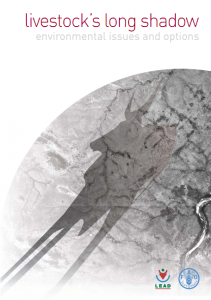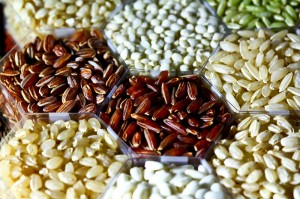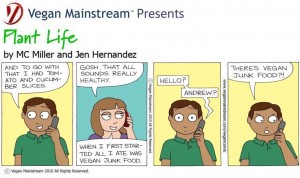So you want to learn more about vegetarianism/veganism? Or you don’t, but this article came up and you’re procrastinating at work/school/life so you’ll read it anyway? Good enough! This is meant to be kind of a brief intro to what this stuff is all about, and will respond to some of the main questions that generally come up in this topic. If there’s a particular area of vegetarianism/veganism (veg*nism) that you would like to know more about, let me know! I love talking about this stuff.
The Basics
A vegetarian is someone who does not eat meat. They may still consume dairy, eggs, and possibly fish (but fish is really a meat). Vegetarians have been around forever!
A vegan is often defined as someone who “begins with vegetarianism and brings it to its logical conclusion.” Vegans attempt to consume nothing that originally came from an animal. This includes clothing, shoes, jewelry, cosmetics, and of course, food. The term was coined by Donald Watson, an Englishman who founded the British Vegan Society in 1944.
But Why?
If you’re a vegetarian or vegan, you’ll know that the question everyone asks you (along with the protein question) is “Why did you decide to become a veg*n?” People go veg for a variety of different reasons. The main ones:
For the animals
There is nothing “circle of life” about our modern production of meat. Animals are kept in terrible conditions for the sole purpose of being killed. This is generally where all the ethical arguments against eating animals live. Many people believe that there is no such thing as “humanely-killed” meat. Additionally, the principle of not using animals for our own gain (this can be extended to circuses, rodeos, and even pets) is often used in reasoning against using honey, pearls, and other things that we generally think of as not harmful to the animals.
For personal health
Eating more plants and fewer animals has been linked to lower cholesterol, higher fiber, lower rates of cancer, diabetes, h eart disease, osteoporosis, and a host of other health issues. For more info on this, see The China Study.
eart disease, osteoporosis, and a host of other health issues. For more info on this, see The China Study.
For the environment
Factory farming is incredibly damaging to the environment. Livestock’s Long Shadow (pdf file), published by the UN’s Food and Agricultural Organization in 2006, details the many harmful impacts that raising livestock has for the environment. One of the more interesting facts: all factors involved, livestock contribute more to greenhouse gas emissions than all forms of transportation.
ZOMG where do you get your protein?
I figure we’ll just tackle this one right off the bat. First of all, you probably don’t need as much protein as you think you need. The average American consumes about double the protein his or her body actually needs. (Source) So let’s just relax about that. The general formula to determine how much protein you need per day is your body weight times 0.36. So a 140-pound person would need about 50 grams of protein per day. Obviously if you’re an athlete and/or a pregnant or breastfeeding woman you’ll need more. Veg*ns can get protein from legumes, grains like rice and quinoa (kee-nwah), tofu, nuts, and non-dairy milks. However, it is true that while all meats offer complete proteins (they have the 9 essential amino acids which cannot be produced by our bodies), most vegetarian sources do not. Quinoa is one of the only plants that is a complete protein.
Aside from eating quinoa all day (which wouldn’t be the worst thing), us veg*ns can use what are called complementary proteins- where one source is missing an amino acid or two, another one has it, and when eaten together or during the same day, they complement each other. We already form complementary proteins in many of the foods we commonly eat: rice and beans, falafel in a whole wheat pita, peanut butter on whole wheat bread, cornbread and beans. Basically legumes + grains is a good way to go.

Some Random Nutrition Notes
Hopefully I’ll get to do a later post on veg nutrition, but for now a few brief things. Being vegan does not necessarily mean eating healthier. A lot of junk food is vegan (and delicious). But that’s not really what veganism is all about, so in between bags of Tings, have a leaf or something.
Even if you’re not looking to go veg, a good guideline for healthier eating is to eat the food as close to how it naturally is as possible. This means eating corn on the cob, not corn nuts. Using rolled or steel-cut oats rather than the instant oatmeal. Basically, when you go food shopping, you should look for food that has five or fewer ingredients listed, or better yet, just one! This way you can better ensure that you’re getting the most nutrition and the least processing possible in your foods. Now, I can’t ignore the cost issues here- it’s fucked up that buying junk food is less expensive than buying broccoli or something, but if you can try to eat more whole foods without going broke, it’s absolutely worth it for your body. Former Jezebel readers beware, but legumes seriously are the shit in this regard. They are cheap and incredibly nutritious. This doesn’t mean eating lentils for every meal every day, but maybe buy a bag of beans instead of that chicken breast. The larger societal and governmental issues of our food system can’t really be addressed right here, but I’ll include some links for those of you who want to read more on this (Food Inc. also addresses this issue).
So that about wraps this up. Do you have a particular food/meal you’d like to share with the group? Good books, articles, films, etc.? Let us know in the comments!
But I want to know more!
Complementary proteins
Sources of protein
Wikipedia on Veganism
Physician’s Committee for Responsible Medicine protein info
Vegan Action
Vegans of Color
Racism & Speciesism
Mark Bittman, Food Matters (lots of good information)
Compassionate Cooks
Carbon Footprint Calculator